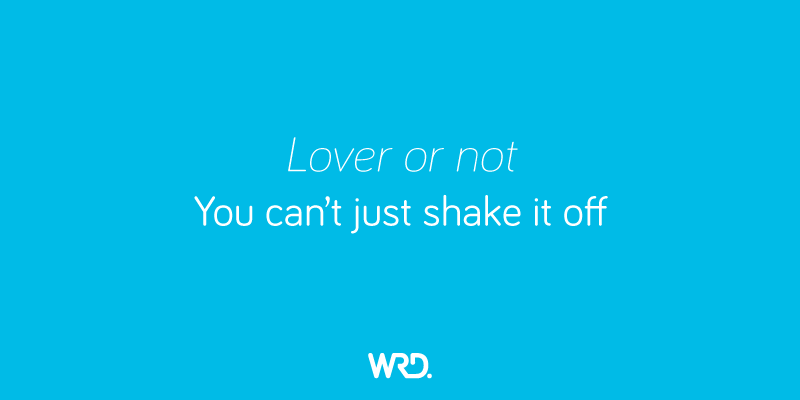When I first came to Australia I managed to secure myself a job working in an agency in Double Bay, where we produced collateral for multi-million dollar homes in the Eastern Suburbs. On the outside (and on paper) this looked like the dream job, but when I started I soon realized that this was far from utopia.
Working hours were merely a suggestion and if anyone left work on time, their work ethic came into question. Our equipment was old and outdated, so we spent hours every week rebooting our computers as they constantly crashed. This would put unnecessary pressure on us when we had deadlines looming. The owner ran hot and cold all day. If she was in a good mood we were all in a good mood, however, this could turn in seconds and then we would all be running scared, not game enough to even look up from our computers.
I spent weeks asking when I’d receive my contract and kept being brushed off. Over the long month that I worked there I saw half the staff leave and be replaced until I eventually joined the mass exodus. I was spending way too much time at work not enjoy it.
I’m sure I’m not alone when I say that we’ve all experienced a toxic culture in one form or another. Perhaps it’s made up of people are rude and bark orders at you, rather than ask nicely. Perhaps they take all of the credit for something that someone else has worked so hard on. These might be the people who gossip to you about others, and then gossip about you when you turn your back. Even worse they could be the ones who bully, intimidate or even harass others.
Hopefully, these people are few and far between in your workplace, but there are plenty of companies that literally breed a toxic and unhealthy culture.
I think that we can all agree that this is not a pleasant environment for anyone to have to work in. I know I wouldn’t want to stick around, and I’d also be just a little hacked off with the managers within the company who weren’t doing anything to change it. But the honest truth is that they are probably part of the problem.
So how do you go about changing a dysfunctional culture, or better still, ensuring that the culture in your business is positive, engaging and inclusive.
14 ways to build a healthy brand culture
1. Understand your ‘why’ and share it with the team
Simon Sinek famously said “Why do you do what you do? And why should anyone care?”
If you can’t answer this question then it is very hard for your team to get on board with why they are coming to work for you rather than your competitor. Understand and articulate what your ‘why’ is and share it over and over again with your team.
2. Define your brand values
Define, articulate and document what is important to your brand as far as values are concerned. What values do you hold near and dear? What values are you striving to achieve, how do you want people to behave and treat each other, how do you want them to think and behave, and what are you not prepared to put up with? Where would you draw a line in the sand? Once you have these, you need to share them with your team and encourage them to live by these values each and every day.
3. Develop an easy to remember brand promise
Do you have a brand promise? I’m not talking about many promises – I’m just talking about 1 key brand promise that you constantly strive towards and make a priority to keep. This promise needs to be one that the team can get behind and will absolutely benefit the clients. This promise needs to be front of mind each and everyday that your team comes to work. And if they aren’t prepared to deliver the brand promise, then perhaps they need to leave.

4. Give your team a purpose
People today more than ever before, what to have a purpose in life and in work. Does your business stand for something that they can truly get behind and feel as though they are making a difference to someone’s life, their environment or the world in general? Coming to work needs to be more than just getting a paycheque, so look at how you can involve your team for the greater good.
5. Value and appreciate them
There are two little words that can have such a profound effect yet are not used enough. ‘Thank you’. It’s a simple concept to thank those who you work with, let them know that you appreciate them or the work that they do. Whether it’s a pat on the back, a thank you note or a box of chocolates, appreciation in any form goes a long way.
6. Share ideas and opinions
Do you allow collaboration within your team? I mean true collaboration where you don’t just let them have their say, but you actually action or implement their ideas. Sometimes when we allow others the opportunity to share their opinions, we can address, refine and improve our business, service to our customers or products. Remember, your team are on the front line and are exposed to things you might not be aware of. Taking their ideas on board could result in proactive changes, but more importantly, will empower and encourage your team to get involved.
7. Celebrate success
It’s in our nature as business owners to set goals and strive for them. But what happens when you reach them? You usually set new goals and move on. But before you do that, do you stop to celebrate with your team? Do you take a moment to reflect what has been achieved, pop open a bottle of bubbly (in our case, ring the Victory Bell), or simply give each other a big high five? Regardless of how big or small, it is very important to celebrate success.
8. Discuss and brainstorm failures
Just as important as sharing ideas and opinions, you should look to areas where you fail as a business. Own up to them and brainstorm ways to improve or change them. Some failures might seem small and insignificant to you, but for a staff member who always has to deal with a system delay or the same thing breaking or being complained about, this can make a significant improvement to their working environment.
9. Hire on attitude not just skill
You can teach a person how to do something but you cannot teach them to have a good attitude or work ethic. The latter is naturally a part of their make-up and is a huge part of being a good asset to the team. Now obviously if the role requires particular skills you need to take that into account, but if it’s between someone with a lot of experience and a bad attitude compared to a person with less experience and an amazing attitude – for the best in brand culture you’d take a good attitude over experience and skill everyday.
10. Hire those who share the same values and beliefs
It’s important to ensure that whoever joins your business shares the same values. If respecting others and treating everyone as equal is part of your values and beliefs, then you don’t want someone who embraces diversity, equality and respect for others. Brands such as Zappo’s will literally hire and fire on their brand values – regardless of how well the person performs.

11. Train your team
It’s amazing how many companies do not train their teams correctly. Untrained teams mean that procedures are not followed, systems fall down and staff are unsure how to act and behave is different circumstances. When you have a well trained team, they become empowered to make positive decisions that they know are correct and inline with the company values and standards.
12. Have your teams back
Always have your teams back especially if they have followed your systems and procedures and maintained the brand values. Well structured and shared values means that when your team acts according to these set of rules they should whole heartedly be protected by the company. Likewise – if they act against them, they should feel the repercussions. When your team know that they will be supported in their decisions and actions it enables them to step up and take responsibility of their role.
13. Actions speak louder than words
‘Do as I say, not as I do’ just doesn’t hack it if you want to build a strong, united and connected team culture. If you want a hard working team, then you need to work hard. If you want a motivated team, learn to inspire. If you want a collaborative team, then you need to learn to communicate. How you behave will mould and shape the culture of your brand.
14. It starts at the top
More often than not, people leave their managers, not their jobs. This demonstrates how important it is for managers, leaders and business owners to ensure that they are setting a good example and ensuring that the culture of the brand is a healthy, positive and happy one. Managers who bully, bark orders and skulk around are less likely to have a healthy team culture than a manager who is interested, supportive and proactive.
If you would like Debbie to come into your business and present to you and your team about brand culture, please give us a call on 02 4732 4766.




